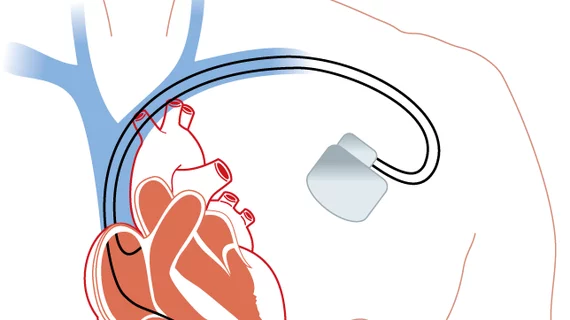‘Notably high’ rates of PTSD, depression and anxiety seen in patients with implantable heart devices
Post-traumatic stress disorder (PTSD), depression and anxiety are all much more common among patients who receive an implantable cardioverter defibrillator (ICD) than the general population, according to new research published in EP Europace.[1]
The study’s authors explored data from 109 studies and nearly 40,000 patients for this systematic review and meta-analysis. Overall, after more than one year after receiving the device, patients encountered high rates of PTSD (12%), depression (15%) and anxiety (23%). Among the general population, meanwhile, those conditions are seen in 1-2%, 7% and 13%, respectively.
In addition, within the first five months, 23% of ICD patients experienced feelings of depression and 32% experienced feelings of anxiety. This highlights the significant impact these devices can have on a patient’s mental health as they adjust to life with a cardiac device.
“ICDs are effective at extending patients’ lives, but we need to make sure that’s a good quality life,” corresponding author Hannah Keage, PhD, a professor of psychology at the University of South Australia, said in a prepared statement. “Rates of mood disorders in people with an ICD are much higher than in the general population, suggesting that psychological assessment and therapy should be integrated into the routine care of these patients.”
The group noted that the high rate of PTSD seen among this patient population is especially troubling. In fact, PTSD appears to be as common among ICD patients as it is among military veterans.
The researchers also explored mood disorders among close loved ones of patients who receive an ICD. They estimated that 14% of patients’ partners experienced depression and 23% experienced anxiety after implantation—numbers comparable to what is seen in the patients themselves.
“Involving ICD patient partners in psychological therapies is more effective in improving patients’ physical and psychological health than attending alone,” Keague said. “The findings in cardiac patients make a lot of sense, as heart health and mood disorders go hand in hand. Psychological ill-health can also lead to heart problems through chronic stress and unhealthy lifestyles. Psychologists have had little involvement in the care of cardiac patients but this needs to change.
Read the full study here in EP Europace, a European Society of Cardiology journal.

